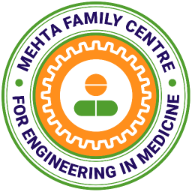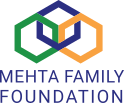 https://www.youtube.com/watch?v=xFZckXjVmo0
https://www.youtube.com/watch?v=xFZckXjVmo0
MFCEM Dialogues #8
by
Matt Abrahams, Stanford Graduate School of Business
on
Tools and techniques for effective communication
Matt Abrahams is a globally acknowledged trainer and teacher on communication and organizational behavior, at the Stanford Graduate School of Business. In the online session on “Tools and techniques for effective communication”, Matt touched upon many relevant and highly pertinent issues on good communication. The session was jointly chaired by Mr. Rahul Mehta, The Bhupat & Jyoti Mehta Family Foundation; and Prof. Nitin Gupta, IIT Kanpur. In an interesting deviation from earlier Dialogue series, we had Mr. Michael Takagawa, Founder and CEO of Corporate Edge, a leadership consulting firm pose very relevant and interesting questions for Matt to answer.
Matt Abrahams set the stage highlighting the importance of communication, and defining communication as “Operationalized Leadership”. He further elaborated that communication is essentially how we make “common” our ideas, beliefs, and goals.
Answering a question by Michael Takagawa on how to overcome anxiety pangs ahead/during public speaking, Matt explained at length how anxiety is “innate to being human” and counterintuitively, acts to energize and focus. He also shared many valuable tips on how to overcome anxiety by addressing a) the symptoms and b) the cause of anxiety, such as by: deep breathing, listening to music and word/number games. His strongly advice was to be “in the present” and not be overwhelmed by the consequence or future stakes involved, a tested means to keep the jitters away.
In a vibrant QnA session with the audience, Matt took up some very relevant questions, such as by Devdhar Patil (Dept. of Chemistry) on the importance of nonverbal cues such as body posture in communication. Matt emphasized the importance of a good body language for effective communication, in particular for online communication he advocated being “Big (fill half the screen space), Balanced and Still”.
To another question by Ashutosh Kumar (Dept. of Chemistry) on how to overcome the anxiety one feels particularly when pitching to senior leaders in the field, Matt answered by explaining the “Cognitive Load theory”, elaborating that one must concentrate on getting the task done, rather than being overwhelmed to get it “right”; since he believes there is no singular right way to communicate.
Ultimately, to a question by Sanyam (Dept. Material Science and Engineering), on how to overcome lack of fluency in speaking English, particularly for most who are non-English speakers being more fluent in their native languages. Matt appreciated the question, and first busted the notion that one must strive to sound “English”, rather, he emphasized that it was important and sufficient to convey ones information correctly. For this he advised to practice “Structure” while communication, one way is to do so, was to ask “What? So What? and Now what”.
Matt ended the session, by nominating the winners for the best question asked, these were: Devdhar Patil, Ashutosh Kumar and Sanyam. He signed off inviting the participants to tune into his podcast: Stanford GSB podcast called Think Fast Talk Smart:
https://www.gsb.stanford.edu/business-podcasts/think-fast-talk-smart-podcast




